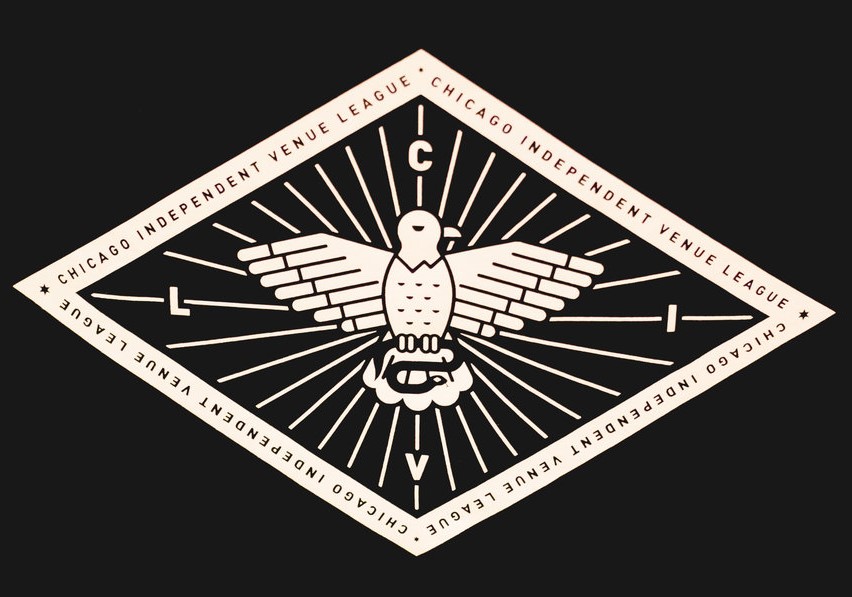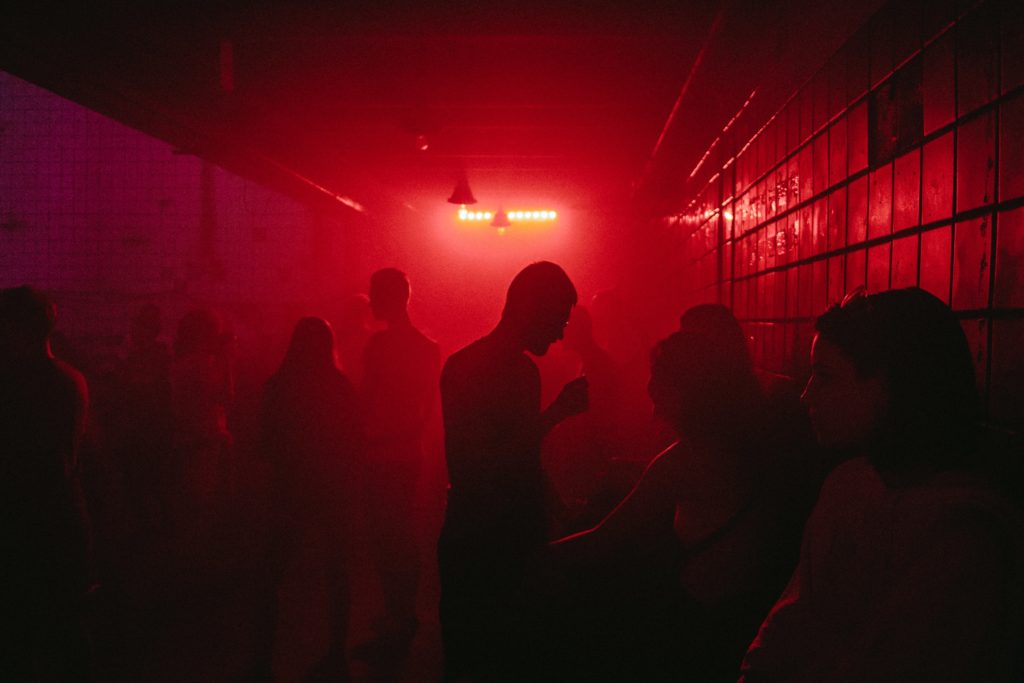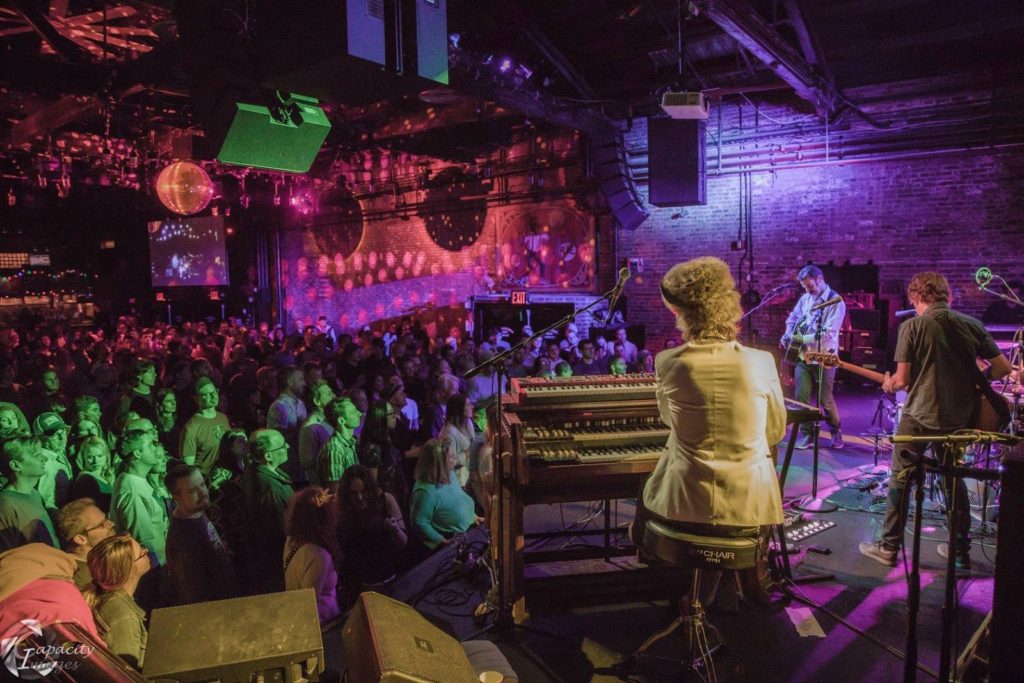
CIVL – Chicago Independent Venue League
In cities around the world, once thriving independent art scenes are under siege by big corporations. A perfect case study of this fight comes in the form of Chicago’s music scene and its battle over a massive mixed-use development called Lincoln Yards.
The proposed 50-acre real estate development would essentially create a brand new neighborhood—one fuelled by big-money realtors, using gentrification and expensive rent to push all but the wealthy out of the area. Some iterations of the Lincoln Yards proposal have included not just one but multiple music venues owned and operated by Live Nation. While that would be cause enough for concern, the development would sit directly across the river from beloved indie venue The Hideout, and a little over a mile away from another, Lincoln Hall.
Lincoln Yards has had the full weight of a variety of politicians and developers who argue that the development would bring money and jobs into the city. That said, the development also has its fair share of opponents. Currently, the city is locked in a stalemate with the Teacher’s Union; negotiations are stalled, while Mayor Lori Lightfoot recently claimed she wouldn’t use any of the money set aside in the budget in the negotiations. And while that’s certainly not the only conflict in the city’s budget, developers Sterling Bay are angling for $800 million in taxpayer funding to pay for the necessary infrastructure.
Local business leaders and wildlife activists alike have voiced their displeasure. The indie music scene, meanwhile, cites the development as the latest way to price artists out of neighborhoods and aide massive corporations’ takeover of the live music scene. Live Nation’s potential involvement in Lincoln Yards isn’t the corporation’s only foothold in the city. With each year, Lollapalooza’s specter grows bigger, and the 2014 sale to Live Nation hasn’t slowed that growth any.
But rather than resign themselves to being overwhelmed and overpowered by corporate money, The Hideout, Lincoln Hall, and 15 other independent venues have banded together to form the Chicago Independent Venue League, or CIVL. Embracing community is essential for the success of any music scene, as well as for the spaces in which they perform. CIVL advocates on behalf of its members and other independent venues in the city, aiming to secure the stability and long-term future of that community of artists.
A big part of CIVL’s platform is remind city officials and residents that independent venues aren’t just a space for live music—they provide thousands of jobs in the city, millions of dollars in salaries, taxes, and charitable donations, and even at times a community space for those in need.
The mere act of development isn’t the sole source of the conflict for CIVL—nor is it solely the potential competition from Live Nation venues. (In fact, independent venues actively and happily compete with each other, while this sort of corporate integration could completely dominate any competition.) From recently published statements, the conflict has much more to do with the corporations acting decidedly outside of and with zero regard to the importance of history and community, two things that have been essential in making Chicago one of the most vibrant and influential music scenes in the world.
“We are not opposed to responsible development that is done with community input,” CIVL writes on their website. “We are simply asking the city to slow down and do the proper vetting necessary for a project of this size.”
Members of CIVL have similarly spoken out about their concerns that Live Nation could one day become a monopoly in the Chicago music scene. If they own and operate the single biggest music festival in the city (with the aide and support of the city), as well as a handful of venues, one corporation could suddenly hold massive sway in the development and opportunity for musicians and squeeze out other venues. “When they announced it—they even [listed] the size of the venues,” explains Tim Tuten, co-owner of the Hideout, in an interview with New City. The proposal, he goes on to detail, included venues of one-thousand, five-hundred, and one-hundred capacity, numbers that exactly match independent venues Thalia Hall, Lincoln Hall, and The Hideout, respectively. “They are literally creating a mega-center of venues the exact same size as our venues around the city.”
There are signs that CIVL’s mission may already be gaining sway. The Lincoln Yards development has yet to actually begin development, and the initial inclusion of a 20,000-seat soccer stadium/performance venue has already been removed due to public pressure.
While big money and massive corporations have long had hooks in the production and performance of music, thriving music scenes have always depended on a close-knit community. Lincoln Yards and Live Nation aren’t the only threat to that vibrancy. However, CIVL stands as a signpost of the power and potential that these communities still have in conversations around the world.

Matt Ford is the founder and CEO of Prism.fm, an Austin-based software company revolutionizing live music event management. With a background in entrepreneurship and a degree from the University of Wisconsin-Madison School of Business, Ford combined his self-taught coding skills with firsthand experience as a concert promoter to address the inefficiencies he observed in the industry. In 2018, he launched Prism.fm, an all-in-one platform designed to streamline operations for venues, promoters, and agencies by replacing cumbersome spreadsheets with integrated tools for booking, financial tracking, and contract management. Under his leadership, Prism.fm has grown significantly, achieving $3 million in annual recurring revenue post-COVID and securing over $15 million in funding . Ford’s commitment to building user-centric solutions has positioned Prism.fm as a trusted partner for over 1,500 venues and promoters worldwide.



